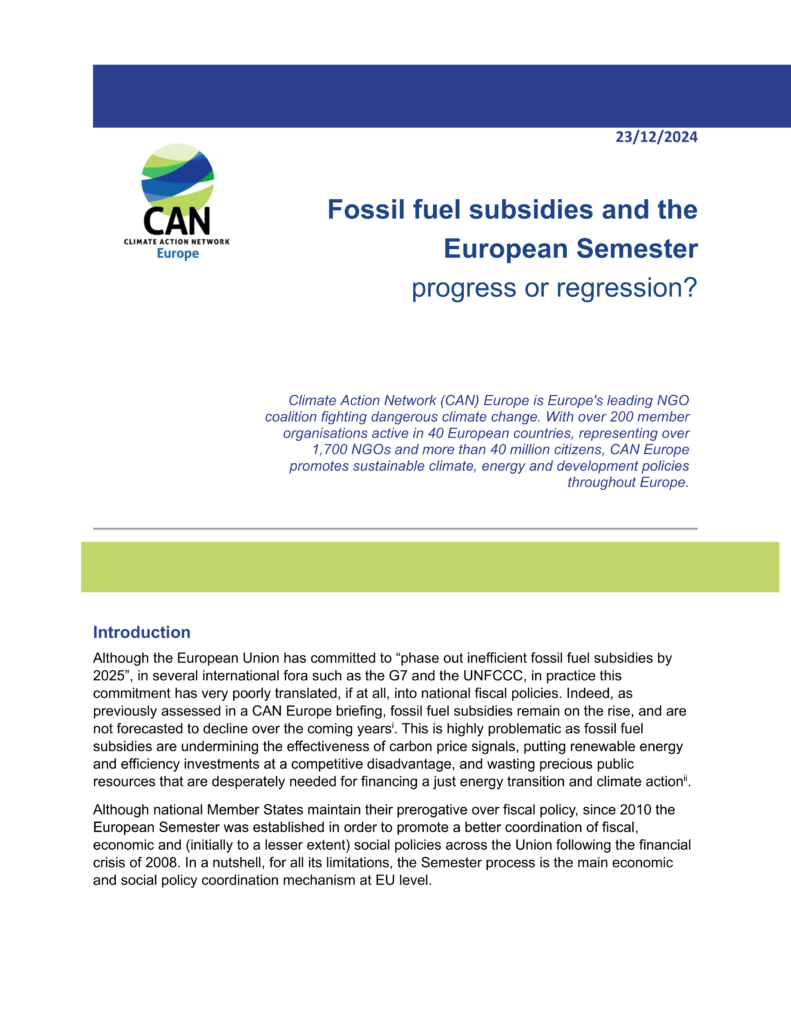Introduction
Although the European Union has committed to “phase out inefficient fossil fuel subsidies by 2025”, in several international fora such as the G7 and the UNFCCC, in practice this commitment has very poorly translated, if at all, into national fiscal policies. Indeed, as previously assessed in a CAN Europe briefing, fossil fuel subsidies remain on the rise, and are not forecasted to decline over the coming years. This is highly problematic as fossil fuel subsidies are undermining the effectiveness of carbon price signals, putting renewable energy and efficiency investments at a competitive disadvantage, and wasting precious public resources that are desperately needed for financing a just energy transition and climate action.
Although national Member States maintain their prerogative over fiscal policy, since 2010 the European Semester was established in order to promote a better coordination of fiscal, economic and (initially to a lesser extent) social policies across the Union following the financial crisis of 2008. In a nutshell, for all its limitations, the Semester process is the main economic and social policy coordination mechanism at EU level.
➡️Read the full document here.
Funded by the European Union. Views and opinions expressed are however those of the author(s) only and do not necessarily reflect those of the European Union or European Climate, Infrastructure and Environment Executive Agency (CINEA). Neither the European Union nor the granting authority can be held responsible for them.





